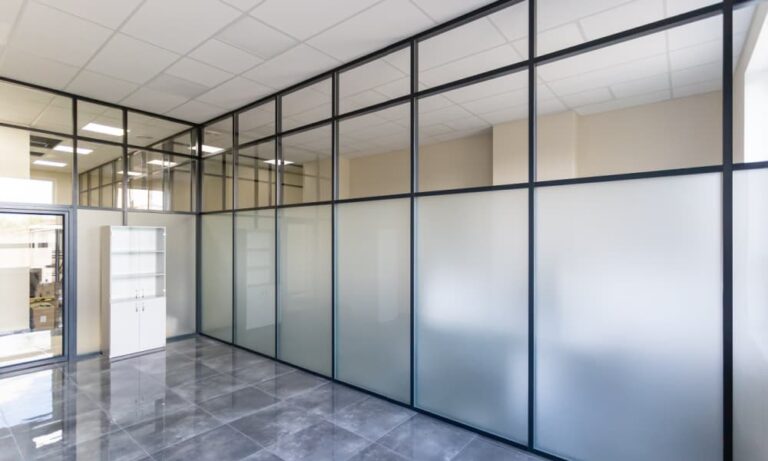
Soundproof glass, or acoustic glass, is an increasingly popular option for our customers here at Altitude Glass, and no wonder – its soundproofing qualities make it an excellent choice for a huge range of commercial settings, from hospitality and leisure through to finance and legal, and everything in between. So if you’re sizing it up for your own workplace, you’re in exactly the right place – we’re only too happy to help here at Altitude Glass! Before you finalise any decisions though, there are a couple of things you’ll need to consider first. Here are five of the most important!
1. Your budget, and 2. Building regulations and requirements
First things first – what sort of amount do you have to spend, and are there any legal restrictions you have to abide by? These are obviously the top priorities, because you can’t move on to any vaguely detailed plans unless you know what you’re physically and financially able to achieve.
Your budget is something that you’ll be best place to work out yourself, and you may already have a good idea of what building regulations your new glass screens will be subject to. If you own the property in question, it’s easy enough to check your own records. If you rent or lease your space, however, you’ll need to consult with your landlord – and it’s also a good idea to check your tenancy agreement while you’re at it.
3. What level of privacy do you need?
In tandem with your costs, it’s also worth thinking about what level of privacy you need, and why. One of the most crucial metrics for measuring audible privacy is the sound rating of your glass.
Now, we should be very clear here: ‘soundproof glass’ is technically a bit of a misnomer, which is why the term acoustic glass is generally preferred. The vast majority of acoustic glass partitions do not completely suppress noise to near-silent levels. To be honest, they rarely need to. Most acoustic glass partitions have a sound rating of between 45db and 47db, which is more than enough to reliably muffle sound – keeping background noise to manageable levels, while maintaining the confidentiality of private conversations. If you’re having one such private conversation, passers-by will be able to tell you’re speaking, but crucially, they won’t be able to distinguish individual words.
As well as the sound rating of your glass partitions, you may also want to think about whether or not you’re concerned about visual privacy, i.e., preventing people from looking through the glass when private conversations are happening. In these scenarios, lots of people tend to choose some kind of graphic: often their company logo or tagline.
4. What specific rooms or areas do you want to soundproof?
Once you’ve got the essentials sorted out, you can then start looking at a few more specifics. Namely, which areas do you specifically want to be soundproofed? If you work in an occasionally or frequently sensitive field, such as accounting or legal, you may want to look at designated rooms for specific types of meetings, such as consultations or case reviews.
If you work in a more general office environment on the other hand, you can just soundproof your main meeting room (or one of them) and use that for any meetings where you need a bit more privacy, such as going over contract details with clients, or HR meetings with employees.
5. Are there any specific areas you’d like to insulate?
Looking at things from another perspective, you may have areas that don’t need protecting from outside intrusion, but instead might be potential causes of disruption themselves.
This specifically applies to areas that tend to generate quite a lot of noise, such as common rooms, canteens, and eating areas. Similar areas tend to include major thoroughfares where conversations might occur on the move, like corridors and walkways between different departments. These may be a particular priority if they run past or through the areas where you may need quiet or privacy.
These are all the main factors to consider! There are a variety of smaller ones it’s worth thinking about, too; for example, the number of doors in and out of your soundproof area (often a point of weakness when it comes to sound insulation). Certain structural features may need to be taken into account when creating soundproof areas too, such as gaps in the ceiling, or raised floors.
Don’t worry if you’re not sure of all the specifics yet though – that’s exactly what we’re here for at Altitude Glass. With around 20 years of experience behind us, whatever you’ve got in mind for your project, you can trust our team to make it a reality. You can find out more about our products and sectors here, or just give us a call on 01254 812112 to get a free quote today. We’re here to help!




